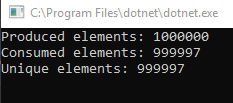A quick update from me with recent findings.
We've migrated all our components to 2.0.3 fairly easily also fixing a couple of minor issues. Planning to deploy changes to production within a month. Thus, my new findings are still on 2.0.0-beta3.
Now that we started to gradually restart the cluster every 24 hours, the issue has become less of a problem, but unfortunately didn't go away completely, which was against our expectations.
It seems like the issue happens for System Targets and Grains pretty much independently, i.e. any of the following states is possible:
- only grains are affected
- only system targets are affected
- both are affected
Often we don't let the issue develop and restart affected silo straight away, so potentially it might still eventually affect both system targets and grains if it didn't when the issue started.
Also I'm no longer sure the amount of time a silo is up is a prerequisite for the issue to happen. Now it seems more like some condition that is just more likely to happen if a silo runs longer. This is based on the following observation.
From ~12am to ~6am is almost dead time for our system when customer-related traffic drops to almost zero. At about 6am it starts to gradually develop to a certain constant (not high) load by 8-9am. Restarts are scheduled to 2am. A couple of times we noticed that the issue was starting on a silo already at 7-1:15am, i.e. after insignificant time from being restarted under insignificant load.
In the absence of customer-related load, the only things running are these two:
- One grain publishing to an SMS stream small messages every 5 seconds and 2 out-of-silo clients subscribed to the stream. Clients additionally call that grain every 10 minutes or so.
- One reminder that triggers every 1 minute (is it too frequent?) and several less frequent reminders (from 10 minutes to monthly).
I doubt this information is very relevant since it's for an outdated version and is very high level, but I thought I would still drop it here in case it helps to shed some light on this vague issue.

Hi,
it is a little bit vague, but I have the impression that Orleans gets slower over time.
My specs are:
I have a very simple grain, that just returns the snapshot (my own state system):
https://github.com/Squidex/squidex/blob/master/src/Squidex.Domain.Apps.Entities/Schemas/SchemaGrain.cs#L305
I use my own serializer with JSON.NET and my benchmarks show that the serialization takes 2-3 ms usually. I also tested it with 100x larger states that expected and the performance is great.
I added some profiling to the client side and I have experienced that the call takes 4-5 ms after I deploy it and several days later up to 200ms or even more (the max I have seen is 10seconds).
I also checked my MongoDB logs where I save all slow queries and there is nothing related.
I am a little bit lost.